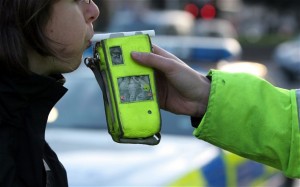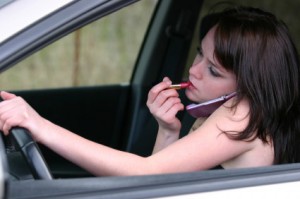Top Ten Most Prosecuted Motoring Offences
Lawyers who deal with all areas of criminal law won’t always know the intricate legal arguments that can be used successfully to protect your licence if you have been accused of any of the driving offences below;
Failure To Provide Driver Information
If you are caught committing a driving offence, you will be sent a section 172 information request.
You will receive 6 penalty points on your licence if you do not complete and return the request.
The 2 possible options for your defence are S172(4) and S172(7)(b) RTA 1988.
A defence is valid if you demonstrate that you have used reasonable diligence to identify who was driving the vehicle at the time of the motoring offence, or that you didn’t receive the request form to provide the necessary information.
Motoring Insurance Driving Offences
It doesn’t matter what your circumstances for driving without insurance are, when caught, you are assumed to be at fault. 6 – 8 points is the penalty if convicted for driving without insurance.
In many instances, the drivers insurance has been cancelled without them being notified.
If you can show you genuinely believed you had insurance, you can use a Special Reasons Argument although these often fail if not presented properly. If in doubt, ask Patterson Law about No Insurance allegation defences, one of the leading motor law specialists in the Uk for their advice on using a special reasons argument for your no insurance offence.
Speeding Road Traffic Offences
As well as 3 – 6 penalty points, the penalty for speed related offences can include a discretionary ban, a fine and costs.
Contesting speeding allegations has become more complicated recently following recent UK case law, meaning that you now need to provide expert evidence if you are going to be successful.
Drink Drive Motoring Offences
The legal UK drink driving breath reading limit is 35mg. The minimum punishment if found guilty of a drink drive offence is a 1 year licence ban.
If you can demonstrate to the court that you were either; not driving, wasn’t on a public road or place, or consumed the alcohol only once you finished driving then you have a legal defence.
Other possible defences for drinking and driving charges are that you only drove for a short distance, that it was life threatening emergency situation, or that you unknowingly consumed alcohol without realising at the time.
Drunk in Charge Motoring Offences
In order to be convicted for being drunk in charge of a vehicle, the prosecution are required to show that you were in fact over the legal UK drink driving limit and that you were the person in charge of the vehicle at the time.
A common defence to this allegation is to show the court that you were not intending to drive until you were under the drinking and driving limit again.
You face either ten points and even a possible discretionary driving ban if you are found guilty of being drunk in charge of a vehicle.
Mobile Phone Motoring Offences
The mobile need to be held while being used in order for an offence to be committed.
Because use of a mobile phone can be a grey area, many Magistrates Courts often have differing views.
Even if you are stopped in a jam, roadworks or stationary at a set of traffic signals, it is still classed as driving and it is an offence to use your handheld mobile phone.
Without Due Care Offences
To prove the motoring offence of driving without due care, the prosecution must prove in court that the standard of your driving fell below the level expected from a competent and careful driver.
Motorway offences such as undertaking are examples of without due care.
Instead of prosecution, and depending on your circumstances, the police may well offer you a Driver Improvement Course.
Fail to Report
Section 170 of the RTA 1988 states that if damage is caused to property, another vehicle or to a person then you are under a legal duty to stop and offer your details.
You must report the accident at a police station within at least 24 hours if you were unable to provide your details at the time of the accident.
Carrying 5 to 10 points on your licence or a driving ban at the Magistrates discretion, this is a serious offence.
If you don’t know damage has been caused, you have a defence if you can demonstrate to the Court that it was reasonable you didn’t know that you had been involved in an accident.
Magistrates consider these motoring offences to be serious. For that reason it has the power to impose community service or even prison sentences if the circumstances of your offence warrant it.
Dangerous Driving Offences
The prosecution need to be able to demonstrate that the standard of your driving had fallen below far below that required and in addition that it should be obvious to a competent and careful driver that your driving was dangerous.
Dangerous driving carries a 1 year ban minimum, and a complete driving re-test and can also include a custodial sentence.
Driving without a Valid Licence
Drivers often misunderstand this offence.
If you are stopped while driving not in accordance with the limitations relevant to your driving licence, for example not having passed a driving test or no L plates, then it is an endorsable driving offence.
A non-endorsable offence would be if the Driver and Vehicle Licensing Agency asked you to return your current driving licence and they suspend your driving entitlement.
It’s a misnomer that in the case of ‘no licence’ offences, your insurance policy will automatically be invalid. This is incorrect.
If you are charged, make sure that you get specialist assistance because the Courts often make mistakes with this issue regarding whether points are applicable to this motoring offence or not.

